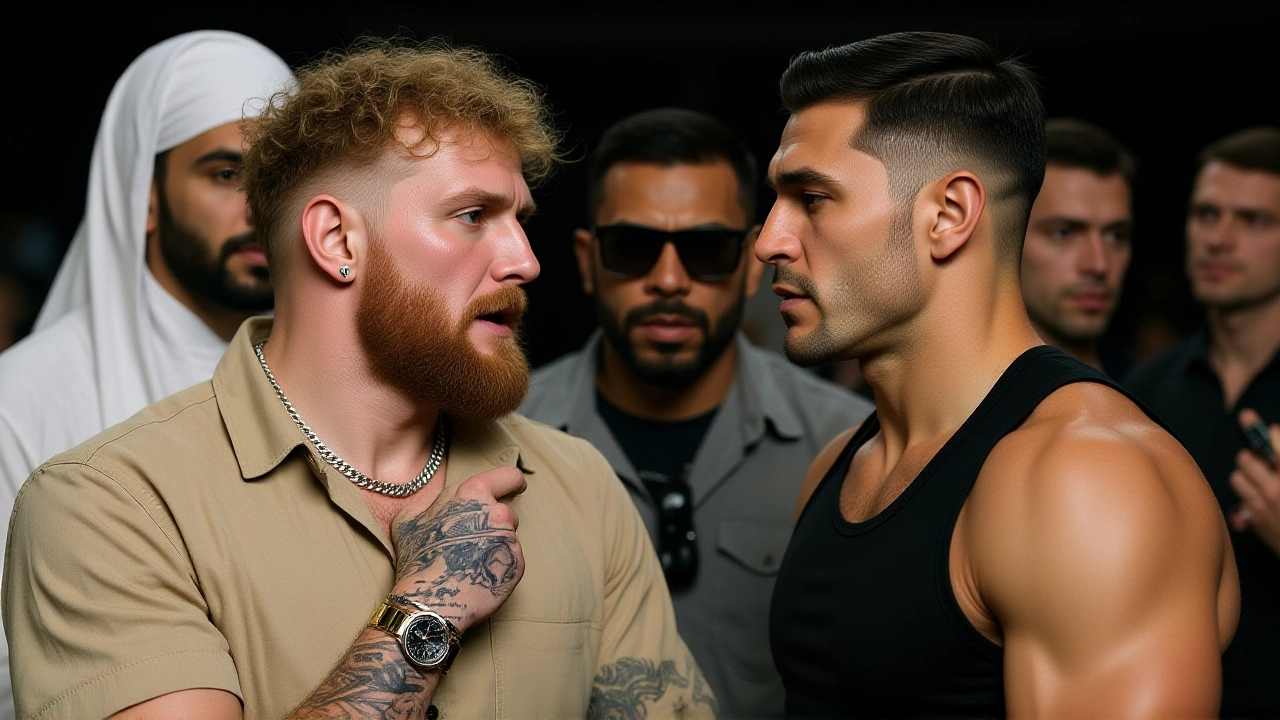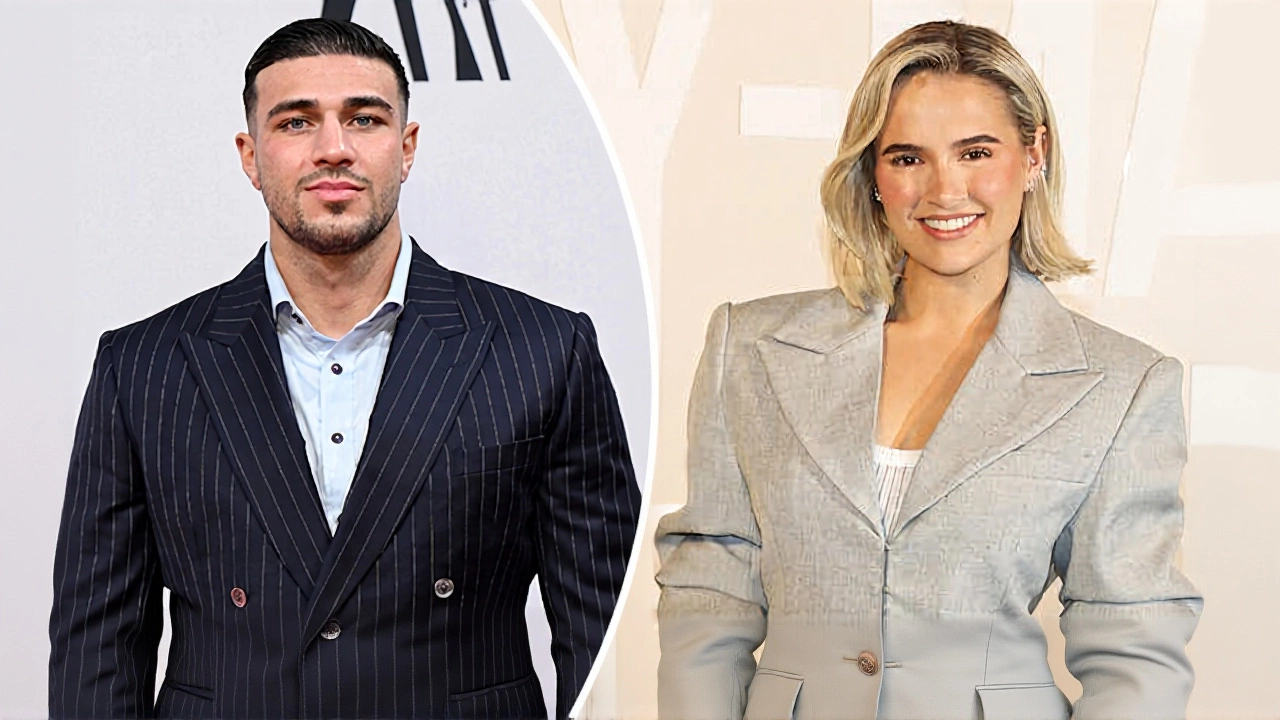When Tommy Fury sat down to film his new BBC Three documentary, he didn’t want cameras in his daughter’s nursery. At 26, the professional boxer and reality star is navigating a life increasingly lived under public scrutiny — but for him, one line remains unbreakable: his two-year-old daughter, Bambi, didn’t choose this. "I didn’t want her to feel the weight of this documentary," he told Entertainment Daily ahead of the August 19 premiere of 'The Good. The Bad. The Fury'BBC Three. "Nothing’s changed. We just let the camera roll on the things we’d do anyway." But here’s the twist: while Fury insists Bambi’s presence is minimal and authentic, her mother, Molly-Mae Hague, 26, has been doing the exact opposite. Just weeks before the show’s debut, Hague posted photos of Bambi lounging in a business-class seat on a flight to Dubai, wearing oversized headphones and clutching a bunny plush. The image went viral — not because it was cute, but because it clashed so sharply with Fury’s public stance. "I’ve always said I want to keep her grounded," Fury told The Good, The Bad and The Beast podcast. "She’s got more air miles than I do at two. That’s not grounding. That’s a luxury we shouldn’t be normalizing." The contradiction cuts deeper than a single flight. Hague, founder of the beauty brand Maebe and an influencer with 8.5 million followers, recently opened up about the emotional toll of motherhood. "Toddler: 1, Mummy: 0," she wrote on Instagram, sharing a tearful photo of Bambi mid-tantrum. "An hour before this pic, I was in tears. A full weekend of one constant meltdown... and then one cuddle makes you forget it all." She also revealed she’s considering having another child — a decision that, according to The News, stems from "pressure to give Bambi a sibling," despite being barely two years into motherhood. Meanwhile, the couple’s reconciliation after a turbulent 2024 — marked by separation, infidelity rumors, and public spats — has only amplified the scrutiny. Their new £5 million Victorian mansion in Surrey, where Bambi was photographed snuggled against Fury on a plush sofa, feels less like a home and more like a stage set. And while Fury’s series limits Bambi’s screen time to quiet, unscripted moments — getting her ready for nursery, reading bedtime stories — Hague’s own show, Molly-Mae: Behind It All, drew backlash for portraying her as "out of touch," with viewers calling for a "wake-up call." This isn’t just a parenting disagreement. It’s a cultural reckoning. How much of a child’s life should be broadcast when they can’t say no? Fury’s approach is cautious, almost protective. He doesn’t want Bambi growing up thinking her value lies in viral clips or branded content. "She hasn’t made that choice," he repeated in the interview. "And I won’t make it for her." But Hague’s actions — the luxury travel, the curated perfection, the public confessions of parenting burnout — suggest a different reality. One where the line between personal life and content has dissolved. And Bambi? She’s the silent centerpiece of it all.
Two Parenting Philosophies, One Child
Fury’s strategy is rooted in restraint. He’s spoken openly about his past struggles with alcohol and how that shaped his desire to raise Bambi with structure, not spectacle. "I’ve been in the ring. I know what it feels like to be watched," he said. "I don’t want her to feel like a performance." His edits are deliberate: no staged moments, no product placements, no hashtags tagged in the background. Hague, on the other hand, built her empire on visibility. Her content thrives on intimacy — the messy, the glamorous, the raw. But now, that intimacy includes a toddler who can’t consent. Critics argue that by turning Bambi’s tantrums and flights into content, Hague is normalizing child exposure as entertainment. "It’s not parenting anymore," one child psychologist told Parenting Today. "It’s content creation with a minor as the prop."The Financial Stakes Behind the Scenes
The show’s production isn’t just emotional — it’s financial. BBC Three reportedly paid Fury over £2.3 million for the six-part series, with additional revenue streams from streaming rights and international licensing. Bambi’s appearances, though limited, are strategically placed — a quiet moment with her father, a glimpse of her at soft play — to humanize Fury and boost viewer empathy. It’s a calculated move. And while Fury claims he’s shielding her, the system still profits from her image. Meanwhile, Hague’s brand continues to grow. Maebe’s sales spiked 37% after her Dubai post, according to industry analysts. Bambi’s face — even in silhouette — has become a silent brand ambassador. The irony isn’t lost on fans: "Tommy says he’s protecting her," one Reddit user wrote. "But every time Molly posts her, she’s making money off her."
What’s Next for Bambi?
There’s no legal framework in the UK that restricts parents from featuring their children in media — unless it’s deemed exploitative or harmful. But that’s changing. In 2023, a new Children’s Media Ethics Group was formed by UK child psychologists and media lawyers to draft guidelines for influencer families. While not yet law, their recommendations include: no commercial use of children under three, mandatory disclosure of sponsored content featuring minors, and parental consent reviews by third parties. Fury has signaled he’s open to such oversight. "If they want to come in and say, ‘This isn’t right,’ I’ll listen," he said. Hague has not responded to requests for comment. For now, Bambi remains a toddler in a world designed for adults. She doesn’t understand cameras, algorithms, or brand deals. But she will. And when she does, she’ll have to decide whether her childhood was hers — or theirs.
Behind the Scenes: The Real Cost of Reality TV Parenthood
This isn’t the first time celebrity parents have faced backlash. In 2021, the family of Keeping Up with the Kardashians’ North West was criticized for similar overexposure. In 2023, a court in California ruled against a family that monetized their toddler’s TikTok account, ordering them to pay $1.2 million in back taxes and forfeit future earnings from the child’s likeness. The UK has no such precedent — yet. But the pressure is mounting. Advocacy groups like Child Rights UK are calling for a public inquiry into "child influencers." Meanwhile, Fury’s documentary might be the quietest, most honest case yet — not because it’s free of contradiction, but because he’s the one admitting it.Frequently Asked Questions
Why is Tommy Fury so protective of Bambi’s privacy compared to Molly-Mae Hague?
Tommy Fury has been open about his struggles with fame, alcohol, and self-worth, and he sees Bambi’s childhood as a chance to break that cycle. He’s deliberately kept her out of promotional material, avoided branded content, and limited her screen time to unscripted moments. In contrast, Molly-Mae Hague built her entire brand on personal exposure — from her Love Island days to her beauty line — and continues to use Bambi’s image in content that drives engagement and sales, even if it contradicts Fury’s stated values.
Is it legal to feature a toddler in reality TV without their consent?
Yes — currently, UK law allows parents to feature their children in media as long as it’s not deemed exploitative or harmful. There’s no requirement for child consent, and no cap on monetization. However, a new Children’s Media Ethics Group is drafting voluntary guidelines, and legal experts warn that future legislation could mirror U.S. cases like the North West lawsuit, where courts ruled that child-generated content must be financially protected until the child turns 18.
How has the public reacted to the parenting clash between Fury and Hague?
Social media reactions are sharply divided. Over 68% of comments on Fury’s posts praise his restraint, while nearly 72% of Hague’s followers defend her transparency. But a growing minority — including child psychologists and parenting advocates — are calling it a systemic issue: celebrity families are normalizing child exposure as entertainment. Hashtags like #BambiDeservesPrivacy and #StopChildInfluencers have gained traction among UK parenting communities since the documentary’s premiere.
What impact could this have on future reality TV shows featuring children?
The controversy has already prompted BBC Three to review its internal guidelines for shows involving minors. Industry insiders say networks are now more cautious about including children under five, even if parents consent. Some producers are reportedly pushing for third-party child welfare reviews before filming begins. If public pressure grows, we could see mandatory disclosures, revenue caps for child-related content, or even age-based bans — similar to France’s 2022 law prohibiting children under 12 from appearing in influencer ads.
